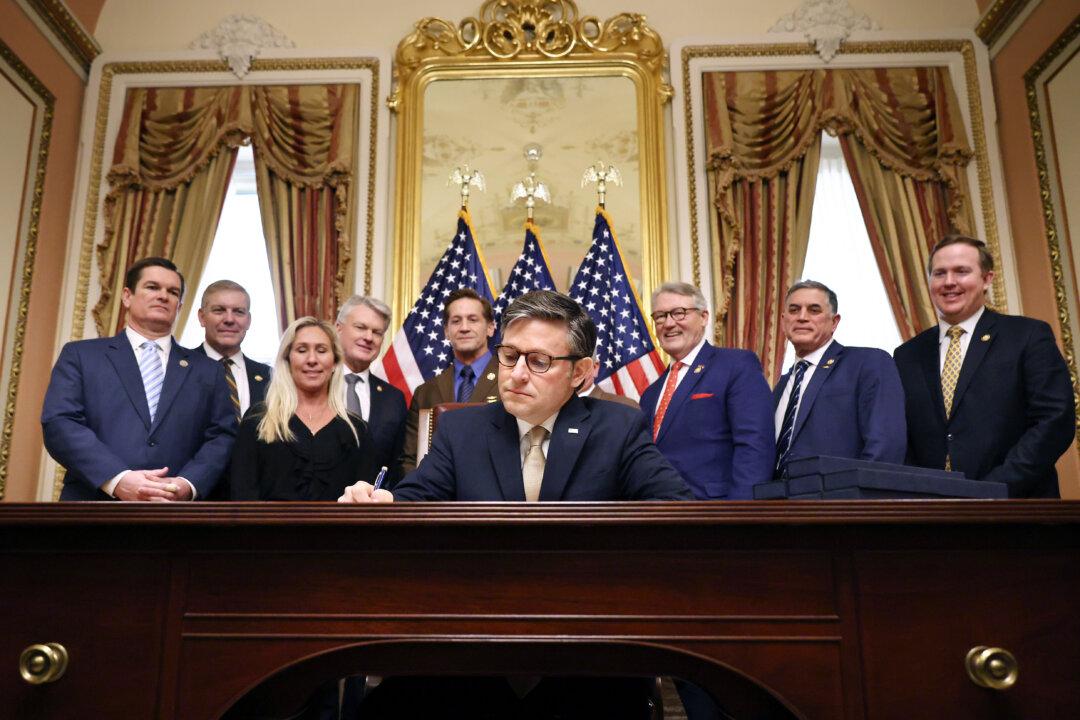WASHINGTON—The U.S. House of Representatives is expected to vote this week on a budget resolution for this fiscal year that will enable the passage of bills to fund the Trump administration’s America First policy initiatives.
The resolution for fiscal year 2025 authorizes over $5 trillion in new spending and directs committees of the House to make recommendations regarding how the money will be spent. It also calls for at least $1.5 trillion in spending cuts.





